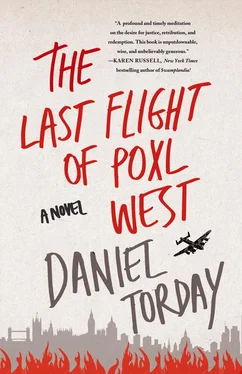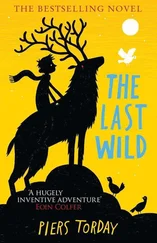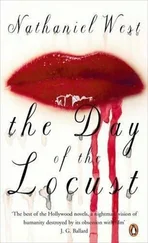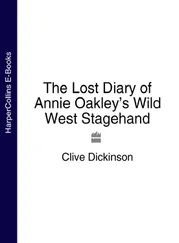Those self-same banshee cries came to define much of that autumn for us — for all of us in London at the time. One night the first week of September, Clive and I sat in a pub near Bermondsey. Another air raid siren went off. I tipped my beer back before turning for the exit. But this was not the proper comportment. As they did each time the sirens went off, as I’d soon realized the previous spring, the bar’s patrons remained seated. This might seem the kind of apocryphal story those who’ve been through war tell once it’s long over, misremembering or embellishing somehow. I can attest to the fact it was this very attitude that allowed the war to continue until Luftwaffe attacks could be subdued.
Here at Smithwick’s Pub with Clive Pillsbury, I found myself sitting in a bar whose windows might implode with lethal shards, whose stone walls might fall and crush us. But we weren’t going anywhere. Conversation in the bar continued as if we were a group of thanes all pretending not to notice the king in heated argument with an invisible ghost. Whole notes of the air raid siren rose and dipped. No one changed his demeanor. The barkeep pulled me a Whitbread. I returned to our table. Clive sat with his coffee. He went about trying to create the admixture of milk and coffee, while all the time the sound of the siren rose and fell. Three times Clive filled his mug to the point of overflowing, then sent it back. Though he made a mess of his place at the table, Clive was repelled by disorder. Coffee drew ever more toward the top, the liquid topped off at the lip of the mug, and his hands would work — first milk, then spoon in after. His eyes never left the mug. He was at this business, the two of us ignoring the sirens, when suddenly he stood.
“I’m off to the lav,” he said. The sirens continued. I know now that bar was never hit by a bomb. But I still sat waiting for the roof to crush me. What would happen when glass shattered? When the world ended for me with no one even by my side to witness it? Clive returned. The siren stopped and we sat through minutes of silence. Later in the war we would hear dogfights overhead. But this had not occurred yet. We heard nothing but Glen Miller playing on the radio. Then a higher-pitched cry, all one high C note: the all clear.
We were quiet again for a moment before Clive’s confession came. It came all at once. He said, “No one ever thinks that he’s anything but the best behind the wheel. They all think they’re the best driver in London.
“Bollocks.”
Around us people returned to speaking at normal volume.
“Everyone gets a tad crazy behind the wheel,” Clive continued. He still had not lifted his eyes from the lip of the mug. “Me, I get angry while driving, sure, but I never see red. I see black. I get blind. I come to lose myself.”
This was the talk of a man who speaks more the more nervous he becomes. I noted this strange progression: He’d been in perfect command of himself during the threat of a raid, but now that was past, something changed. Rills of coffee the color of river silt were spilling all over the sides of his mug. I looked around for a waiter but he was with the barkeep sipping a Watney’s.
“It wasn’t seeing black kept me from driving,” Clive said. He continued to look down into his coffee. “Do they tell the story around the station, then?”
“What story?”
“‘What story?’” Clive mocked. “What do you think? I can see it all over your face. The story of how Clive Pillsbury isn’t driving the canteen truck because he cracked.”
“People say you were drunk.”
“Too much drink has kept me from driving?” he said. “If only. A few too many whiskies, a man recovers in a day.” At a corner table a squat man with a gleaming head told a joke that kept his two companions laughing. A crescendo had been building in the minutes since the all clear. Clive was sopping away at his mug, into which now he continued to pour milk from the small pitcher at its side.
“Might be good to take a sip if you don’t want to spill over any more,” I said.
Clive’s cheeks flushed.
“‘Might be good to,’” he said.
For the second time in five minutes he’d mocked me — and the second time he’d ever done so.
“It might do to take a sip, Poxl. But I can’t. Same reason I can’t drive the truck.” He fell silent again. “You see, I get in this way so I can’t do a thing.”
“Can’t do a thing?” I said.
“Like with this cup of coffee here.” Clive looked down at his mug and then put a finger to its rim. “For a long time I knew how I liked my coffee. I knew it more and more, until I could drink it only if it was the right combination.” I told him that everyone has a way he likes his coffee. “Not like this,” Clive said. “I can see the color without tasting it: caramel, only not. September clouds, only not gray. And this”—Clive was pointing down at his coffee—“is not right.”
“One time I’d gotten into my car at the end of a long day,” Clive said after a pause. “As I was driving I thought I’d hit something. Could have been a dog. I drove back. There was nothing. The next week it happened again. This time I was sure I’d hit something. Still, I got half a mile from it before turning back.
“Nothing.
“A couple of days later I thought I’d hit something again. This time I decided I must not have. I got ten miles away before I turned back and found nothing there.
“It began to happen more and more. The bump would stick in mind until, when I got back to the location of the first incident, my mind had made it into a human-size bump. Even when it was a man I’d thought I’d hit, I’d convinced myself I’d hit nothing. I would almost get home. Then, a hundred yards from my door, I’d go back.
“Only now, on the ride back to the scene, I’d hear a new bump. In my mind it was a man again. Do you know the guilt, believing you’ve killed a man? Even if it wasn’t intentional. Even if you didn’t witness the carnage with your own two eyes. Who wouldn’t it drive mad? The circle grew tighter until, just before you arrived and came after a job with the Home Guard, I almost didn’t make it to my house one night. Six in the morning before I arrived home. Eight hours to drive fifteen miles.”
A smell rose from the bar as a patron lit a cigar. We could hear each tinkle of each glass touching the next in the cabinet behind the publican. The silence in the absence of an air raid siren was blaring.
“It happened in the canteen car, too,” Clive continued. “They were shorter drives. I returned to the station on the same routes we’d taken. I would sweat the whole time, convince myself on the way back to the station I would be able to see what I’d hit. Only on my way home, I couldn’t get there. I kept getting into tighter loops.”
“This all sounds scary, Clive,” I said. “Surely you don’t sound as if you’ve cracked. Your nerves are simply frayed.”
“I’ve got a theory,” Clive said. “I believe I’ve come to understand the cause of it all, what my mind’s up to. What the world’s up to. Zeno’s paradox. I read philosophy at Oxford. Zeno was a Greek philosopher who held that if you looked at it using math, no physical mass could ever move. He used the example of a bow and arrow. In order for an arrow to hit its target, it’s got to move through space — let’s say ten feet. To get halfway to its target, it must go five feet. Each time the arrow moves across this smaller space, it must get halfway there. It’s mathematically impossible for the arrow ever to get there. It’ll divide in half infinite times without ever crossing the final infinitesimal divide.
“No one has ever been able to disprove the theory.
“Maybe I was testing the paradox. Get halfway there, turn around. Here we are now. Siren, all clear. It’s been a year and no bomb has dropped on us. No smoke. No bang. No ash. No rubble.” The men across the way erupted in laughter. My shoulders rose toward my ears. Obsessive Clive Pillsbury just sat there in the wash of his recitation of Zeno’s paradox.
Читать дальше












